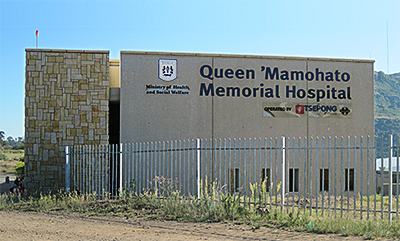Public–Private Partnership Improves Health Care in Lesotho.
 Clinical services and patient outcomes improved at a hospital network in Lesotho after its operations were shifted from the government to a public–private partnership, a new study led by Boston University global health researchers reports.
Clinical services and patient outcomes improved at a hospital network in Lesotho after its operations were shifted from the government to a public–private partnership, a new study led by Boston University global health researchers reports.
The study in the journal Health Affairs gauged changes that occurred after the government of Lesotho entered into a partnership with a private consortium in 2008 to build and run its national referral hospital and three affiliated community-based clinics. At the time of the shift, the network was struggling with staff shortages, aging infrastructure, and declining service quality.
The study found that, under public–private management, the network “delivered more and higher-quality services and achieved significant gains in clinical outcomes, compared to the government-managed network.”
The network served more patients, with lower average lengths of inpatient stays, and had more staffing and equipment and better clinical quality. For example, nursing staff members did not routinely triage patients in the casualty unit at the hospital when it was government-run. Instead, a nonclinical administrative staff member used his or her judgment to prioritize patients’ care needs. Under the new management, the study found, 84 percent of patients were triaged by nursing staff within five minutes of arrival in the casualty unit.
The public–private hospital is a completely new facility, with three recently renovated clinics and one new clinic with new infrastructure and equipment. The hospital has a new ICU and NICU, which have helped to improve services and outcomes. Leadership also has changed.
“We conclude that health care public–private partnerships may improve hospital performance in developing countries, and that changes in management and leadership practices might account for differences in clinical outcomes,” the study says.
The study was funded by the World Bank Group’s Global Partnership on Output-Based Aid. Nathalie McIntosh, a health services researcher at the Veterans Affairs (VA) Boston Healthcare System, was the lead author, and Taryn Vian, an associate professor of global health at SPH, was the principal investigator. Co-authors include: Aria Grabowski, formerly a research assistant at the SPH Center for Global Health and Development; Brian Jack, a professor and chair of the Department of Family Medicine at the School of Medicine; and Elizabeth Limakatso Nkabane-Nkholongo, country director at the Lesotho Boston Health Alliance, in Maseru, Lesotho.
A second paper from the study, published in Health Systems and Reform, presents qualitative analyses of interview data with key people affiliated with the government-managed and public–privately managed network, showing what changes may be responsible for improvements in hospital performance.
Submitted by: Lisa Chedekel